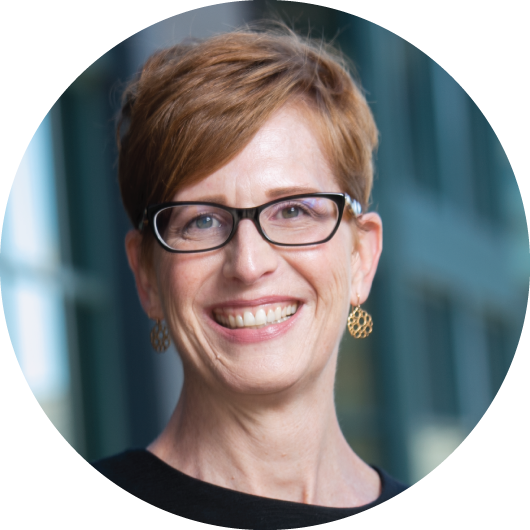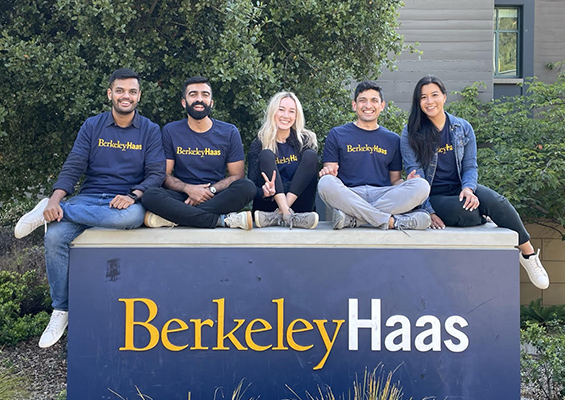How companies recruit MBAs in 2020 has changed; what they are looking for in MBA candidates for internships and full-time positions has not.
Layne Austin, an MBA recruiter at Salesforce, acknowledged that, “Webinar-fatigue is real. We've rethought our approach from the way we sell to the way we do events to the way we recruit. We’re offering more frequent and more intimate engagement, and more opportunity to network with alumni.”
Salesforce’s 49,000 employees work in 63 cities worldwide (maybe a few more, now that Salesforce staff are able to work remotely through August 2021). Opportunities for MBAs—interns or full-time positions—cover a wide variety of disciplines: marketing, and strategy, in both customer-facing and technical roles. The company also has a strong commitment to social impact, practicing what CEO Marc Benioff calls “stakeholder capitalism.”
We are very focused on corporate philanthropy, so candidates who already have a passion for volunteering and giving back tend to do really well."
We talked with Layne about how MBA candidates should approach recruitment at Salesforce. “I struggled to find my own path early in my career. When I discovered recruitment, I realized I would be in a position to help others in that same situation. I love working with MBAs, especially career switchers, who are taking the reins on their careers. I can look creatively at their résumés through the lens of their potential and competencies, not just their qualifications for a specific role,” she said.
Answers have been edited for brevity and clarity
What does Salesforce look for in MBA candidates in terms of skills? Experience? Characteristics?
I truly believe that there is something for everyone at Salesforce! With that, the required skills are going to vary. We are open to career changers, but candidates need to clarify and highlight their transferable skills on their application. For example, marketing requires strong presentation skills, while our analytics roles will require Excel chops. In terms of experience, we typically look for folks with three to five years of work experience under their belt before business school. For characteristics, this probably comes as no surprise: we are looking for folks who are comfortable with ambiguity and a rapidly changing environment. Last, we are very focused on corporate philanthropy (check out our 1-1-1 model!), so candidates who already have a passion for volunteering and giving back tend to do really well.
What makes an MBA recruitment candidate stand out from the crowd?
First and foremost, the candidate needs to map to the core competencies for the role, which are listed in the job description. Competency-based interviewing is how we ensure an unbiased process. Usually, the final stage in our interview process is some sort of case study or presentation. This is where creativity and resourcefulness can serve a candidate well. There is a whole lot of information about our business online, and candidates who have prepared in advance and can pull information from different sources stand out.
Are there specific roles at Salesforce for which having an MBA is essential? Why?
Our Business Value Services organization is staffed by a lot of MBAs. I think of these folks as our sales SWAT team; they come in during the sales cycle to help make an effective case for the customer to purchase our products. This role pulls from so many essential MBA courses: financial modeling, negotiation, analytics, and marketing, among others.
Given equal skills between two candidates, what tips the balance?
Usually, the scale is tipped with proven alignment to our values, coupled with a genuine interest and excitement about Salesforce. Our core values are Trust, Customer Success, Innovation, and Equality, so interview answers that align to these values can make a candidate stand out. I’ve noticed talking with Haas students that these align closely with your Defining Leadership Principles! Like I mentioned earlier, there is a lot of information out there about Salesforce, so the ability to pull blogs, articles, interviews, or product demos into the final stage of the interview can show us that you understand and believe in the company and the product.
How does Salesforce factor DEI into its recruiting?
For me personally, as someone who doesn't identify as an underrepresented minority, the first step is education. For example, we as university recruiters can't recruit at an HBCU campus without understanding the history behind these institutions. Everyone in the recruiting process needs to start with education.
After that, we need to ensure the opportunity is marketed and available to a wide variety of audiences. Next, we implement a consistent competency-based interview process that is the same for every candidate we speak with. For example, we created SIFT, the Salesforce Interview Feedback Tool, to standardize the interview process and help mitigate bias.
Of course, the work doesn't end there as it's imperative that all of our interns and new hires feel included and supported once they're here. We partner with our Office of Equality for summer programming and manager enablement. I've been super impressed and inspired by Salesforce's response to racial injustice and its support of communities of color who have been disproportionately impacted by COVID-19. There is a lot of work still to be done, but I believe we're moving in the right direction.
Read more from the From the eyes of a hiring manager series:









